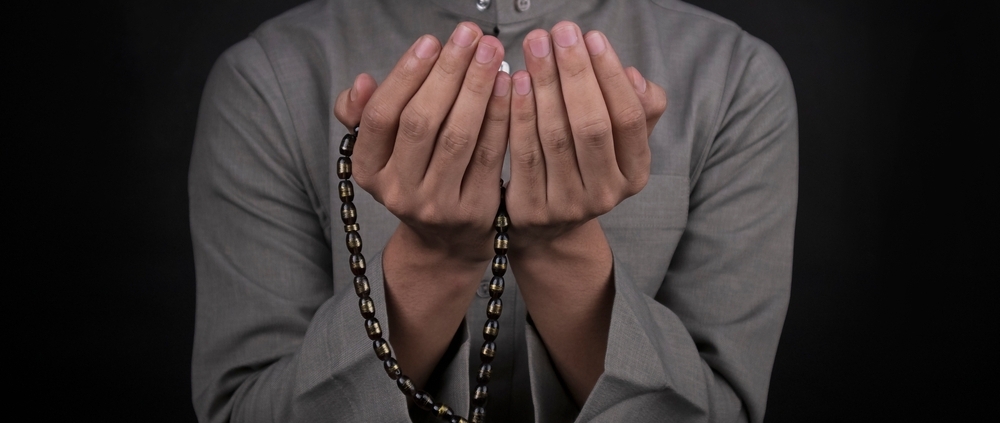How to Interpret the Effects of Salat al-Istikhara?
Answered by Mawlana Ilyas Patel
Question
I am still not clear on what exactly I am supposed to judge the answer to my istikhara by, despite reading all of the responses to what istikhara is on Seekersguidance. Please answer pointwise so this doubt is cleared up for once.
- Does positive/negative istikhara show up as your gut feelings? What if you have conflicting feelings?
- Does it show up in a matter of being made easy? If so, what does that mean? Will there be zero struggle? e.g., in business, marriage, studies, etc. What degree of effort is ease? As a very resilient person, what I call ease, others call difficult.
- Does that mean only I can interpret my istikhara?
- How much time must I give to see if something is happening or not to see if it has been eased?
Answer
In the Name of Allah, the Most Merciful and Compassionate
I pray you are in good faith and health. Allah Most High fulfill your du’as, and aspirations and make matters clear for you to choose and act upon, Amin.
At the onset, one has to understand that the outcome of an istikhara is as strong as the habit and number of times one does it. The more you do it, along with seeking counsel and taking advice from others (istishara), the easier and resultant outcome will be in the form of gut feeling, inclination, signs, and dreams. Although, none of the hadith mention seeing a dream, signs, or color. These are outcomes and experiences of Godfearing scholars, pious people who have been doing it regularly in matters of importance in their life and have made istikhara their way of asking for goodness and guidance.
Seeking Guidance (Istikhara) and Taking Advice (Istishara)
The prophetic guidance of istikhara and istishara has been mentioned in many authentic narrations. In fact, in the Quran, Allah Most High says, instructing the Prophet (Allah bless him and give him peace) to consult the companions: “and consult with them in (conducting) matters. Once you make a decision, put your trust in Allah. Surely Allah loves those who trust in Him.” [Quran, 3:159]
Anas Ibn Malik (Allah be pleased with him) reported from the Prophet (Allah bless him and give him peace), “The one who performs prayer for guidance (istikhara) will not be unsuccessful, and the one who takes advice (mashwara) will never regret.” [Tabarani, al-Mu‘jam al-Awsat; Haythami, Majma’ al-Zawaid]
The answer to an istikhara may merely be the heart’s inclining towards the particular alternative, and need not be a dream or a sign, or sometimes one’s inclination may be towards one alternative, but through the baraka of the istikhara, Allah will turn it aside and bring about something better; whether by shedding new light on the matter or by some other means. Such an answer, proceeding from Allah’s omnipotent power (qudra) rather than from a personal feeling, is equally of the success (tawfiq) of the istikhara.
It will not show up in the matter being made accessible, but having done the Istikhara, it should assure you that you have asked Allah Most High for guidance in the case, and now you trust Him in its outcome and acknowledge and accept it as your fate and destiny.
Yes, you can interpret your istikhara yourself as something related to you. Although, one can ask other Godfearing scholars or individuals to do istikhara for them, too.
Istikhara, looking deep into the words, is seeking goodness in the action that one’s inclination has decided to do, unto the hands of Allah Most High to put goodness (khayr) in it and trust Him in all matters as we advance, in the beginning, middle and end of the action. The outcome, in the end, is a person’s kismet and fate. [Abu Usama, Istikhara in Light of the Sunna; Keller, Sea Without Shore]
Short and Simple Istikhara Dua
I advise you to keep your tongue moist with a short and straightforward istikhara du’a, and make it your future habit.
Abu Bakr (Allah be pleased with him) reports, “When the Prophet (Allah bless him and give him peace) intended doing something he would recite اللهُّمَ خِر لِي وَاختَر لِي” Allahumma khir li wakhtar li [O Allah! Make this good for me and choose the better option for me].” [Tirmidhi; Ibn Maja]
Also, one can recite this often, too:اللَّهُمَّ أَلْهِمْنِي رُشْدِي، وَأَعِذْنِي مِنْ شَرِّ نَفْسِي
Allahumma alhimni rushdi wa a’idhni min shari nafsi , O Allah! Inspire me with the correct guidance, and save me from the ploys of my own ego. [Tirmidhi; Mustadrak Hakim; Ibn Hibban]
Check this link:
Istikhara in the Light of Sunna
Why not begin your search for knowledge by signing up for a course on SeekersGuidance.
SeekersAcademy (seekersguidance.org)
I pray this helps with your question.
[Mawlana] Ilyas Patel
Checked and Approved by Shaykh Faraz Rabbani
Mawlana Ilyas Patel is a traditionally-trained scholar who has studied within UK, India, Pakistan, Syria, Jordan and Turkey.
He started his early education in UK. He went onto complete hifz of Qur’an in India, then enrolled into an Islamic seminary in UK where he studied the secular and Alimiyyah sciences. He then travelled to Karachi, Pakistan.
He has been an Imam in Rep of Ireland for a number of years. He has taught hifz of the Qur’an, Tajwid, Fiqh and many other Islamic sciences to both children and adults onsite and online extensively in UK and Ireland. He was teaching at a local Islamic seminary for 12 years in the UK where he was a librarian and a teacher of Islamic sciences.
He currently resides in UK with his wife. His personal interest is love of books and gardening.
